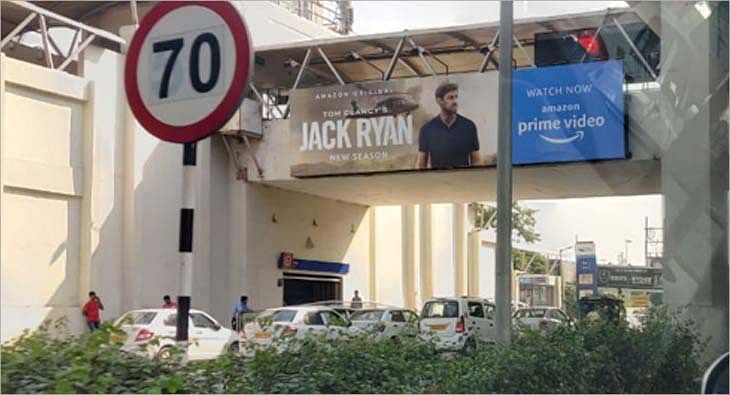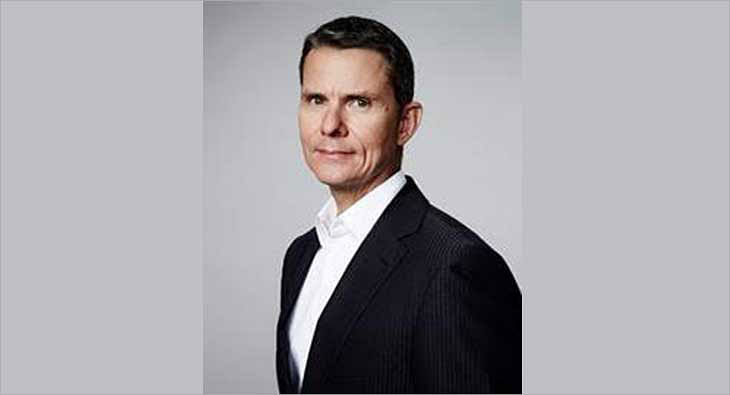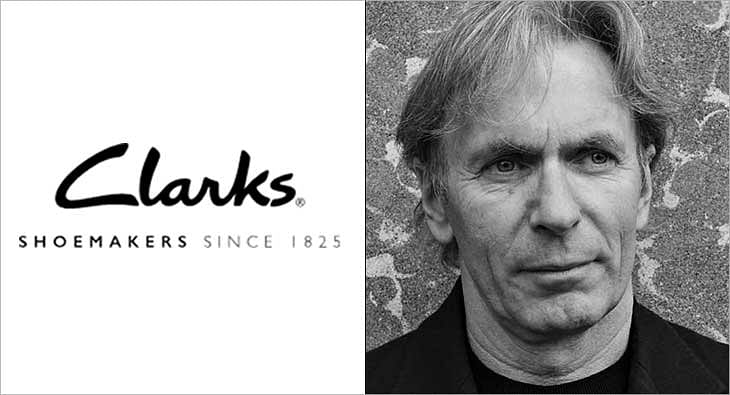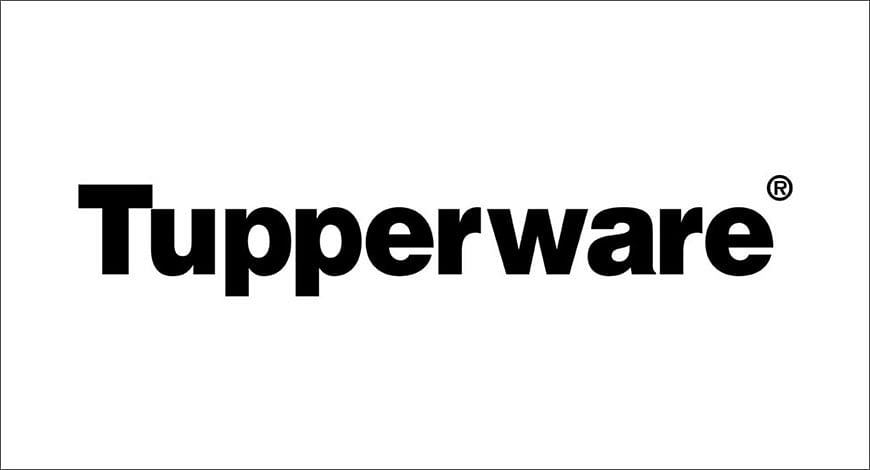International: Media agency of the year: OMD
Confident Shop Rebounds to Win Marquee Pitches, Add $1.4 Billion in Billings OMD started 2005 with a jolt. Cingular Wireless decided in March to move about 60% of its budget -- including strategic planning and broadcast duties -- to WPP Group’s Mediaedge:cia. The loss of the juiciest part of a $1 billion media budget hurt plenty, but what added extra sting was the timing

Confident Shop Rebounds to Win Marquee Pitches, Add $1.4 Billion in Billings OMD started 2005 with a jolt.
Cingular Wireless decided in March to move about 60% of its budget -- including strategic planning and broadcast duties -- to WPP Group’s Mediaedge:cia.
The loss of the juiciest part of a $1 billion media budget hurt plenty, but what added extra sting was the timing: The decision came a week before OMD’s first North American management conference.
At the meeting, a Native American culture-themed gathering in Scottsdale, Ariz., OMD North America CEO Page Thompson decided to take up the Cingular defeat head-on after delivering his initial remarks. What he saw in the 200 or so gathered there was not fear or blame, but instead an attitude of confidence and cooperation. “It was not ‘You’ve got to fix this or you’ve got to do this,’ ” he said recently. “It was more an attitude of ‘How can I help? or ‘How can I push the envelope?’”
To say that OMD rebounded would be an understatement.
Over the next nine months, the Omnicom Group-owned agency added about $1.4 billion in new billings, prevailing in some of the year’s major pitches including Bank of America and Lowe’s and picking up brands like eBay, Hilton Hotels, American Century Investments and AARP along the way.
Establishes Windy city shop
The agency also successfully established Prometheus, a Chicago-based shop for conflict and transactional business that’s already had some new-business strides of its own and is now opening a New York office.
And perhaps most impressively, it continued to expand its research capabilities and is showing it’s become a strong partner for the brave new digital world.
“It was the year OMD USA came of age,” says Joe Uva, President-CEO of OMD Worldwide. “It was the year all the things we invested in from a capabilities, process, human capital and tools standpoint all came together.”
And it did so quickly, especially if you consider that improving research and creativity were part of a gauntlet thrown by Mr. Thompson during a road show at the end of 2004.
In the estimation of both Mr. Thompson and his boss, the U.S. region had been lagging behind the rest of the world in these departments. Expanded into a full-service media agency in 2001, OMD rather quickly established itself as a global force, performing at a high level both in new-business pitches and in award shows for creative media across a number of regions.
Planning innovations
“Since 2002, we have been a leader in breakthrough thinking and innovation from a planning and execution standpoint,” says Mr. Uva. “But the U.S. had sporadic success, quite frankly, and the work we did for a few clients was outstanding, but we weren’t delivering it on a consistent basis.”
To see the fruits of these improvements, one could look no further than the shop’s new-business success.
While naysayers contend that performance has much to do with the success of Omnicom’s strong creative agencies, especially BBDO, Mr. Thompson says that overlooks the scrutiny now given to media in virtually every bundled pitch.
He made five trips to Lowe’s headquarters during that review; during the last he was alone with five marketing executives. Bank of America demonstrated the same rigor. “This isn’t 10 minutes given to media at the end of the pitch,” he says. “They’re really looking under the hood, making sure the media operation is the best there is.”
Maybe the best example of that ambition to innovate is OMD Next, a research program for emerging media for which the agency has signed up a dozen or so of its biggest clients.
Marketers such as Visa, FedEx, McDonald’s and JCPenney are investing in a fund that will give them both generic and proprietary research on technological developments in media like DVRs, video on demand, satellite radio and mobile phones. Moreover, all the marketers have committed to spend in these high-growth areas, and it’s expected that pilot programs will emerge from the research in coming months.
Forward-looking insights
Visa USA VP-Advertising Nancy Friedman says just as important as programs like Next is integrating those forward-looking insights into day-to-day thinking. “The nice thing is that they combine the expertise in what’s coming down the pike with the regular planning group so it’s not just an entity within itself,” she says. “It’s well-integrated.”
JCPenney Chief Marketing Officer Mike Boylson says OMD has been pushing the retailer to re-evaluate “all of our customer-contact strategy and all of our media across all three channels” -- stores, Internet and catalog. “As a company we’ve got to rationalize that and we’re engaging OMD’s research arm this year to look at our total media plan beyond electronic for the most effective way to communicate our story.”
“We’re not an easy company to work for, but they really respond,” Mr. Boylson says. “They’ve been ahead of the curve. They were pushing us before we were even ready to look at the total media plan. We’ve finally recognized the need, and we’re ready to take that step.”
In 2004, OMD began in earnest the process of beefing up its bench of strategic thinkers, hiring Mike Hess as global research director. Last year, Mr. Hess brought in Sandy Eubank to focus on research in the U.S. Finally, in a high-profile snatch, Mr. Thompson lured Mark Stewart from Universal McCann as managing director of OMD East and to help chart the agency’s future.
Mr. Stewart is focused on improving tools, like the proprietary process Checkmate, and rolling new ones like a new market structure tool called Prospector, as well as accelerating channel planning. He describes his role as “helping to create OMD 2.0.”
Asked about this characterization, Mr. Thompson says, “I think we’re already moving onto OMD 3.0.”
Becoming OMD 3.0
Mr. Thompson and the rest of OMD’s North American operating council spent two days earlier this month in a hotel in Connecticut to develop a five-year business plan that will help the agency structure itself for the explosion of digital media, including TV formats such as DVRs and VOD, as well as Internet blogs and podcasts.
The agency is enlisting a management consultancy, Omnicom’s Stromberg Associates, to help implement the plan. But before they can get too far into the future, OMD will have to deal with some more immediate issues. In a bit of déjà vu, 2006 has started with a shock of its own. Three major clients have, in quick succession, taken their business elsewhere.
First, ABC, for which OMD had done highly regarded work, moved its business to Wieden & Kennedy’s New York office. Then, OMD lost Wm. Wrigley Jr. Co. in a consolidation review to WPP’s MindShare. Finally, DirecTV returned its creative and media business to Interpublic Group of Cos.’ Deutsch. As you’d expect, Mr. Thompson claims to be more determined than frustrated. “I hate losing more than I love winning. I hate it with a passion. We’ll move on. We’ll find out what we did wrong and move on.”
Source: Adage
Read more news about (internet advertising India, internet advertising, advertising India, digital advertising India, media advertising India)
For more updates, be socially connected with us onInstagram, LinkedIn, Twitter, Facebook Youtube & Whatsapp
Uber appoints Lucinda Barlow as Senior Director of Marketing for Asia-Pacific
Prior to this, Barlow was Global Marketing Director at YouTube
Uber has appointed Lucinda Barlow as Senior Director of Marketing for Asia-Pacific. Barlow will be based in Australia and will be responsible for the marketing of Uber products and businesses other than food delivery service Eats.
Prior to this, she was Global Marketing Director, YouTube. She worked for Google as head of corporate communications and public affairs and later as marketing director for Australia and New Zealand. She has also worked for Symbian, the company that created the operating system for Nokia’s range of smartphones.
‘Uber has had an extraordinary impact on the lives and livelihood of millions of people. I’m thrilled to join the Asia-Pacific team to help bring further mobility, freedom and opportunity in this exciting region,’ Barlow was quoted as saying.
‘She (Barlow) is uniquely positioned to lead Uber’s Asia Pacific brand, product marketing and reputation efforts, and support the continued growth of a stellar regional team,’ a press note from Uber said.
‘Lucinda brings over 20 years experience in internet, technology and mobile business across Asia, the United States and UK. From a former mission critical systems engineer at BHP, to leading YouTube marketing globally, to launching Symbian’s first office in China, to building marketing functions at two internet start-ups, Lucinda is an agile leader with an industry acclaimed track record of delivering impact at a staggering scale.’
Barlow wrote on twitter:
Incredibly excited for my next chapter. I'm joining Uber to lead marketing in APAC. This is a company and region I'm passionate about. https://t.co/IQB5cjfECq
— Lucinda Barlow (@lucindabarlow) October 9, 2019
Read more news about (internet advertising India, internet advertising, advertising India, digital advertising India, media advertising India)
For more updates, be socially connected with us onInstagram, LinkedIn, Twitter, Facebook Youtube & Whatsapp
WPP AUNZ's Switched On to join AKQA, Australia
The joint entity’s emphasis will be on rich, innovative brand storytelling throughout the entire customer journey
WPP AUNZ has announced its Sydney-based digital marketing and media consultancy, Switched On, will join the Australian arm of global innovation and experience design agency AKQA.
This union is in direct response to client interest and demand for comprehensive digital solutions that help define, find, connect and inspire customers across all brand interactions, from acquisition through to retention. The joint entity’s emphasis will be on rich, innovative brand storytelling throughout the entire customer journey, bringing clients’ long-term brand purpose to life whilst maintaining a laser focus on short term performance.
John Steedman, interim CEO WPP AUNZ said: “This is two teams with momentum becoming one, and a bold move by them both. It’s driven by a burning desire to provide pioneering solutions from two highly experienced senior local teams.
“Joining Switched On and AKQA formalises the close working relationship both agencies already have. The partnership uniquely combines media, tech, data and design literally under one roof. The result is a stronger client offering and WPP AUNZ is proud to support them,” Steedman concluded.
By fusing their respective MarTech and AdTech capabilities, the driving principle will be to deliver on the unfulfilled promise of large technology platforms and connected transparent media investments.
“This initiative is a terrific example of our team’s growth mindset and a shared vision of the future. Both agencies are at the top of their game. It’s a powerful combination that offers a modern, post-broadcast perspective to the interface of customer and brand,” said Brian Vella, AKQA Managing Partner.
The new offering builds on the success of AKQA Media in San Francisco, an elite business that delivers a 360-degree view of brand experience for clients including GAP, Volvo and Uber through an integrated approach to media, technology, and data.
“AKQA Media is widely regarded as one of the world’s premier media and technology agencies, something we believe will resonate well with Australian marketers,” Vella continued.
“As the worlds of marketing, technology, and customer experience converge, it’s clear a strategic reprioritisation of brand building is essential. We feel what’s needed is a unified proposition that straddles the need to balance this long-term vision with the reality of short-term performance in today’s digital age. That’s why we’ve come together,” said Chris Hitchcock, Managing Director, Switched On.
The combined entity’s capabilities offer an unrivalled depth and breadth of experience with more than 300 team members covering:
- Digital Consulting
- Performance Media
- Creative Strategy & Storytelling
- CX and Transformation Strategy
- Experience Design
- Communications Planning and CRM
- Technology and Engineering
- Commerce Data, Insights and Personalisation
- Innovation and R&D
- Social and Influencer Marketing
Switched On will continue to be led by Managing Director, Chris Hitchcock, responsible for the continued success of the Switched On team and its integration into AKQA. Hitchcock will join the AKQA Executive team, reporting into Brian Vella, Managing Partner of AKQA in Asia Pacific. Both agency brands will continue, with Switched On transitioning to become AKQA in the future.
AKQA operates in 28 markets globally, with over 2100 people worldwide. In APAC the studios who collaborate closely include Melbourne, Sydney, Auckland, Tokyo, and Shanghai. It most recently was awarded two Grand Prix Lions at the Cannes Lions Festival of Creativity.
AKQA and Switched On are part of WPP AUNZ, Australasia’s leading creative transformation company.
Read more news about (internet advertising India, internet advertising, advertising India, digital advertising India, media advertising India)
For more updates, be socially connected with us onInstagram, LinkedIn, Twitter, Facebook Youtube & Whatsapp
Helena Snowdon is Publicis Media ANZ’s new business and marketing head
The former Mindshare MD, who has also been previously associated with top global media agencies like PHD, Maxus and iProspect, replaces Mandy Henry
Helena Snowdon has been appointed Publicis Media’s head of business and marketing for Australia and New Zealand, as per media reports. The former Mindshare MD replaces Mandy Henry.
Snowdon has been previously associated with my global media agencies, including PHD, Maxus and iProspect. She was managing director Mindshare Melbourne from May 2017- September 2018.
“I feel privileged to be joining Publicis Media, working with the executive leadership team in ANZ, as well as the talented teams at Starcom, Spark Foundry, Zenith and Performics,” Snowdon was quoted as saying. “Publicis Media presents a progressive and transformative model which opens up huge opportunities for clients. I’m looking forward to playing my part in communicating this message and meaning across ANZ, and driving further impact and growth for the business overall.”
Read more news about (internet advertising India, internet advertising, advertising India, digital advertising India, media advertising India)
For more updates, be socially connected with us onInstagram, LinkedIn, Twitter, Facebook Youtube & Whatsapp
CNN International Commercial appoints Phil Nelson as Chief Operating Officer
Previously, Nelson was Managing Director, Turner North Asia and South East Asia Pacific
CNN International Commercial (CNNIC) has appointed Phil Nelson as Chief Operating Officer (COO) to lead CNN’s operational and international growth initiatives outside of advertising sales.
As COO, Nelson will oversee CNNIC’s Business Development and Strategy, Finance, Strategic Planning and International Sales Operations as well as its Content Sales and Licensing. This includes managing and growing CNN’s relationships with over 300 digital, broadcast and Out of Home content partners – from local CNN branded channels to airlines and hotels that carry CNN content live and on-demand.
Previously, Nelson was Managing Director, Turner North Asia and South East Asia Pacific. In this role, he has overseen all aspects of Turner’s business in these regions including distribution of CNN International and taking a key role in establishing local partners CNN Indonesia and CNN Philippines. Nelson has also held other business development and strategic planning roles at Turner since he joined in 2010 and has significant digital experience from his time at AOL, culminating in him being Managing Director for AOL Asia. In addition, Nelson holds an MBA from Harvard University and, prior to entering the corporate sector, was a commander in the US Navy.
Nelson will be part of the CNNIC Senior Management team, reporting directly into Rani Raad, President of CNNIC, and will work closely with a wide range of divisions across CNN and WarnerMedia. Nelson will continue to be based in Singapore in the near-term and his team is spread across the globe, particularly in key CNNIC hubs of Hong Kong, Singapore, London and Miami.
“The CNNIC business has continually evolved since it was created back in 2013 to optimise the revenue, brand and commercial partnerships across our dynamic offering of CNN content and products,” said Rani Raad. “I am delighted that Phil joins us as we enter the next chapter of our business in a role that brings together all the operational, strategic and non-advertising sales revenue under one leadership. Phil has a first-rate track record at Turner and will bring a unique skillset of business acumen, creative thinking and forensic focus.”
“After many successful and exciting years at Turner Asia, I am very pleased that my next move is within the WarnerMedia family to a brand as remarkable as CNN,” said Phil Nelson. “CNNIC has done a great job in innovating and adapting its business to stay ahead of the competition during a period of unprecedented change in the news and media industry. I am looking forward to contributing to this success in the years to come.”
Read more news about (internet advertising India, internet advertising, advertising India, digital advertising India, media advertising India)
For more updates, be socially connected with us onInstagram, LinkedIn, Twitter, Facebook Youtube & Whatsapp
Giorgio Presca named Clarks CEO
Presca to join in March, will manage operational, financial and commercial aspects of the business and lead the Clarks strategy with the Executive Committee
Clarks, the global casual footwear brand, has announced the appointment of Giorgio Presca as Chief Executive Officer.
Presca will be responsible for all operational, financial and commercial aspects of the business and will lead the Clarks strategy with the Executive Committee. He will join the company in March.
Presca, born in Trieste, Italy, has more than 20 years of experience in managing and developing global premium brands, particularly in the footwear and apparel industries, working across listed, private-equity-owned, family-run, and founder-led businesses.
His most recent position was CEO at Golden Goose Deluxe Brand, where he led the operating transformation, rapid growth and global expansion of the business.
Between 2012 and 2016, he was CEO at Geox where he executed a brand and company turnaround and returned the business to profitable growth. Giorgio has built his track record in senior leadership positions in Diesel, VF Corporation Jeanswear International division, Citizens of Humanity, Levi Strauss & Co. and Lotto.
Commenting on the appointment, Tom O’Neill, Chairman, said: “I am pleased to welcome Giorgio to Clarks as our new CEO. He brings a wealth of experience, including a deep understanding of the footwear market. He will work together with interim CEO Stella David to ensure a smooth transition over the coming weeks, after which Stella will return to her previous role as non-executive director. I would like to thank Stella for stepping in as interim CEO at a challenging time for Clarks and for her tireless and engaging leadership in the role.”
Presca said, “I cannot wait to join an iconic and historic brand like Clarks and work closely with the Board, the Executive Committee, its 13,000 people and operating partners across the world. Clarks faces the challenges of today’s competitive markets, changing distribution channels and the need to adapt to a rapidly evolving consumer environment but has the competences and assets to return to sustainable growth and profitability in the course of the next few years.”
Read more news about (internet advertising India, internet advertising, advertising India, digital advertising India, media advertising India)
For more updates, be socially connected with us onInstagram, LinkedIn, Twitter, Facebook Youtube & Whatsapp
Tupperware appoints ex-PepsiCo exec, Chris O'Leary, to its board of directors
O'Leary has more than 37 years of operational and leadership experience, having served in several strategically important executive positions at companies like General Mills & PepsiCo
Tupperware Brands has appointed Chris O'Leary to its board of directors, according to media reports.
O'Leary joins the US-based kitchen and households product company renowned for its model of direct sales as it looks to ramp up global growth. He takes up the new role immediately.
Rick Goings, Executive Chairman, Tupperware Brands said, "We are pleased to have Chris join our board. He brings more than 37 years of operational and leadership experience to Tupperware, having served in several strategically important executive positions at major global consumer product companies including General Mills and PepsiCo. We believe the combination of his deep industry knowledge, broad international experience and strong, proven leadership skills will be invaluable to the Company as we continue to execute our global growth strategy."
O’Leary previously spent 16 years at PepsiCo, Inc., where he held numerous roles, culminating in serving as Chief Executive Officer and President of Hostess, Frito-Lay, Inc. before moving to General Mills. In almost 20 years there, he became head of international business before leaving the company in 2016. He holds a Bachelor of Business Administration in marketing from Pace University and a Master of Business Administration from New York University.
Commenting on the appointment, O'Leary said, "I look forward to working closely with board members and the management team to provide new insights and perspectives as Tupperware continues to take aggressive steps to advance its performance and drive enhanced value for shareholders."
Read more news about (internet advertising India, internet advertising, advertising India, digital advertising India, media advertising India)
For more updates, be socially connected with us onInstagram, LinkedIn, Twitter, Facebook Youtube & Whatsapp
International: Hottest media property that's not for sale? Time Inc.But skeptics question top execs' real long-term intentions
Time Inc. consistently makes impressive double-digit profit margins and is considered by many a good media business, a still-growing company with as-yet-unlocked potential synergy with the rest of the Time Warner operation. Yet everyone from the Time & Life Building to Wall Street and Nebraska keeps on wondering when the property is going to be dealt.
Time Warner chief Dick Parsons recently told a "town hall" meeting of 400 employees about a conversation he'd had with Omaha investment wizard Warren Buffett on the subject of selling Time Inc. "As your friend, don't do that, it's a good business," said Mr. Buffett, according to people who heard Mr. Parsons recount the story. "But," he added, "if you do sell it, sell it to me."
And there's the rub. Time Inc. consistently makes impressive double-digit profit margins and is considered by many a good media business, a still-growing company with as-yet-unlocked potential synergy with the rest of the Time Warner operation. That fact, along with Mr. Parsons' persistent denials that there are any plans to sell, ought—one might think—to kill this story. Yet everyone from the Time & Life Building to Wall Street and Nebraska keeps on wondering when the property is going to be dealt.
It's also been noted that Mr. Parsons, whose contract is up in May 2008, is not Jeffrey L. Bewkes, Time Warner's president-chief operating officer and the company's heir apparent. And Mr. Bewkes has repeatedly said that nothing is off the table. "It is constantly looked at," Mr. Bewkes said at a Goldman Sachs media conference last September. "What should we not have? Or what should we get?" Many people believe Mr. Bewkes would sell Time Inc. for the right price.
A note to skeptics: Time Inc. could probably fetch bids above $16 billion. Try finding a CEO who wouldn't at least slow down for a look.
Anyone following the ongoing upheavals in media—not to mention the jangled nerves following round after round of layoffs at Time Inc., where McKinsey & Co. is now examining areas like information technology and finance—won't be surprised to hear that questions over Time Inc.'s place at Time Warner aren't going away.
The Monday after Mr. Parsons' "town hall," as it happens, a Bear Stearns analyst raised his rating on Time Warner to "outperform" partly because he believes the company, particularly once Mr. Bewkes takes over, will get more aggressive about restructuring its portfolio. To wit: It could merge AOL with another leading web property—or perhaps could spin off Time Inc.
"We think that the publishing division is the least attractive strategic fit with Time Warner's other video-centric businesses such as cable networks, cable systems and filmed entertainment," said the analyst, Spencer Wang, in his note. Combined with challenges in the magazine business such as slow growth due to online cannibalization, he said, there could be several benefits of divesting publishing.
A year ago, Reed Phillips—managing partner at the media-investment bank DeSilva & Phillips—would have given a Time Inc. sale or spinoff no chance. "Today I would no longer say 'never,' because Time Warner has continued to change and evolve," Mr. Phillips said. "I get the clear impression that the company is focused on operating performance and measures how each division is doing and how each division contributes to the overall company. And if there's a sense that part of the company is no longer contributing in the way that top management expects, I don't think anything's sacred."
Top management at Time Warner, like that at any public company, is under pressure to improve revenue and earnings year after year, no matter the market conditions. Although Time Inc. Chairman-CEO Ann S. Moore is expanding quickly online, moving the needle with print has proved much harder. That has forced strikingly difficult decisions, most recently last week's death sentence for the Life newspaper supplement.
"Wall Street wants to see growth," said Robert Safian, the Fast Company editor and Mansueto Ventures managing director who worked for Time Inc. titles Money, Fortune and Time during the last decade. "The bigger your base, the more you need in raw terms to show it. But if you back Time Inc. out of Time Warner and there's more growth in other divisions, then the overall growth might look bigger."
Plenty of people still consider the idea—first pushed to the front burner during Carl Icahn's 2006 drive to break up Time Warner—to be unlikely, impossible or ridiculous. For one thing, "Time" is the name on Time Warner's door, said Andrew Swinand, president-chief client officer at media agency Starcom USA. "I would be shocked if they sold it," he said. "For me, the biggest thing is that Time Warner as a company needs to be dynamically flexible. I still believe that the initial vision of integrated media was correct. I just believe that they haven't activated it."
The tax hit on any outright sale would be painful too, if less so in a spinoff to shareholders (which could lead in turn to a takeover). Time Inc. also owns huge stores of content that should prove valuable in a Long Tail world. And the company has been securing better position for showing growth by cutting costs, redirecting investment to digital projects, selling 19 magazines and closing two others.
"Corporate has worked closely with Time Inc. in developing its new online strategy, which is showing success," a Time Warner spokesman said. "We don't have any plans to spin off Time Inc." A Time Inc. spokeswoman referred inquiries about the company's relationship with Time Warner to the parent company.
Finally, there's the issue of price, but that could cut either way. Two media bankers said a premium property like Time Inc.—which really has no equal in its business—would command a sky-high multiple of perhaps 15 times earnings before interest, taxes, depreciation and amortization. Last week's client note from Bear Stearns estimated that Time Warner's publishing division will have 2007 EBITDA of nearly $1.1 billion, which could put a bid close to $16.5 billion.
That is not a figure anyone would take lightly—neither a potential bidder nor the potential seller.
But the money is out there. "Private-equity firms have become so much bigger in the past year that now that kind of bite size is attainable," Mr. Reed said. "A private-equity firm could do that transaction today. It would have been much harder to do a year ago, but they've raised so much money, and you see all the time that they're looking at big media opportunities."
Time Warner shareholders wouldn't let management ignore a $16 billion offer either. "Companies can't just stiff-arm shareholders," Mr. Reed said. "They really have to listen today, more and more."
Meanwhile, the thousands of Time Inc. employees who survived the cuts of 2005, 2006 and 2007 walk the corridors occasionally wondering what Ms. Moore, Mr. Parsons and Mr. Bewkes really think of them.
"I don't think anyone is confident that Time Inc. will stay part of Time Warner," said one former Time Inc. executive, who predicts the conglomerate will eventually split up. "From the CEO down, everyone questions whether or not Time Inc. will be spun off."
There certainly could be advantages for an independent Time Inc., such as a better ability to focus on long-term strategy. Mr. Swinand, the sale skeptic, said Time Inc. would have fewer resources on its own but would be speedier and more flexible.
Mr. Reed, the agnostic, said Time Inc. wouldn't lose much if separated from Time Warner and would retain enormous clout. "They would also be able to invest much more aggressively in taking the brands into the digital realm," he said. "They're doing a pretty good job already; it's just that they're hamstrung by having to deliver earnings to the parent company."
All the talk of speed and aggression, as a matter of fact, reflects the reality of the magazine business today. It's in transformation. The business will survive, but those publishers that adapt best will thrive the most. Others will keep having to make difficult choice after difficult choice, pinned between the need to prepare for the future and the state of the field today. Even though Time Inc. owns some incredibly powerful brands, really changing the business model might take a "reset" year—which Wall Street rarely allows public companies.
As things stand, the need to make short-term numbers all the time is breeding resentment.
"Basically the dollars are going into digital at that company," the former Time Inc. executive said. "If you're not one of the four weeklies, people are very frustrated. They are not putting money behind transforming the women's lifestyle publications. Those are the ones that have had constant growth, and yet they're not getting the investment."
Another former staffer recalled the speculation among Time Inc. employees. "There was hallway chatter about it at different times," the ex-staffer said. "Sometimes it was hopeful. 'Wouldn't it be great? Will Warren Buffett buy us?' Other times people said, 'Who would buy us and what would they do with us? They might squeeze us even harder. That Midtown real estate is expensive. Maybe Time Inc. could move to Princeton, N.J.'"
Source: Adage
Read more news about (internet advertising India, internet advertising, advertising India, digital advertising India, media advertising India)
For more updates, be socially connected with us onInstagram, LinkedIn, Twitter, Facebook Youtube & Whatsapp














 Share
Share




